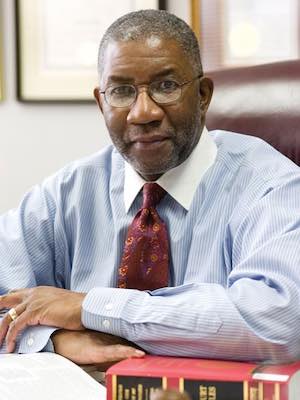
Martin Luther King Jr. was murdered in Memphis, Tennessee, on April 4, 1968. He was born 39 years earlier, on January 15, 1929, in Atlanta, Georgia.
Between those dates, King was a son, brother, schoolmate, student, moral philosopher, husband, father, activist, pastor and prophet.
His death made him a martyr for social justice, voting rights, equal rights, human rights and what he, following the example of the great Howard Thurman and King’s mentor at Morehouse College Benjamin E. Mays called “the Beloved Community.”
As the world commemorates his January 15 birthday, politicians, business leaders, educators, theologians, activists and students should reflect on the meaning of King’s life. I am glad to join that effort.
I recall how our parents had the Huntley-Brinkley NBC news program on our black-and-white television set as our family ate dinner each weekday so we might learn what King was doing.
I recall seeing news footage of King’s 1963 “I Have a Dream” speech on the steps of the Lincoln Memorial.
I recall King’s courage in walking with courageous Black factory workers, domestic workers, students, seniors and white allies to demonstrate against Jim Crow segregation across the American South.
I recall King’s pastoral presence during the funeral services for four Black girls who were murdered when a bomb planted by white racists exploded as they were attending Sunday School at Sixteenth Street Baptist Church in Birmingham, Alabama.
I recall how King insisted that civil rights leaders finish James Meredith’s walk against terror after Meredith was shot.
I recall how he embraced a young John Lewis, was challenged by Stokely Carmichael, and how he and Malcolm X, another Black man who was killed before King died, separately challenged white supremacy and U.S. hypocrisy about justice.
I recall the Birmingham, Alabama, campaign, and how white “moderates” criticized King for recruiting school children in the fight against Birmingham’s Eugene “Bull’ Connor, the face of white supremacist policing – please don’t call it justice – in that city.
Read Taylor Branch’s award-winning book Parting the Waters, and learn how King’s resolve for civil rights made him a target of FBI Director J. Edgar Hoover, how he was hounded by the IRS, how his activism strained the patience and resources of NAACP Director Roy Wilkins, and how King rejected calls for gradualism concerning voting rights, civil rights and social justice.
Read Parting the Waters to learn how Joseph H. Jackson, president of the National Baptist Convention USA, Inc., ousted King as vice president of the denomination’s Sunday School Publishing Board because King supported the pro-civil rights candidacy of Brooklyn pastor Gardner Taylor against Jackson, who criticized civil disobedience by Black clergy.
Remember (or learn) that journalists criticized King for his stance against the U.S. war in Vietnam on April 4, 1967.
The New York Times issued an editorial claiming that King had damaged the peace movement as well as the civil rights movement. Life magazine assailed King’s April 4, 1967 speech at Riverside Church in New York City as “demagogic slander that sounded like a script for Radio Hanoi.” The Pittsburgh Courier, an African American publication, charged King with “tragically misleading” Black people.
And at the White House, President Lyndon Johnson was quoted as saying, “What is that goddamned nigger preacher doing to me? We gave him the Civil Rights Act of 1964, we gave him the Voting Rights Act of 1965, we gave him the War on Poverty. What more does he want?”
I recall sitting at our family table with my father on April 4, 1968, when the television programing was interrupted with news that Martin Luther King Jr. had been shot and killed in Memphis. I will never forget Daddy’s words. “Well, they got him.”
And I recall how President Ronald Reagan and other political and business leaders opposed naming a national holiday for King. In Arkansas, white legislators agreed to the holiday only if Robert E. Lee was recognized also. Mind you, these Arkansas legislators – “good” white Democrats and Christians – boasted about their “fine” relationships with Black people.
Martin Luther King Jr’s life should not be trivialized by merely requiring that children read or recite portions of his “I Have a Dream” speech.
King was more than an orator. He was the best example of prophetic citizenship in the world during the last half of the 20th century – if not for all time – who lived and died for justice. His last book – Where Do We Go from Here – Chaos or Community? – should be required reading for anyone who cares about the future of humanity.
I am incensed about how King’s prophetic citizenship has been trivialized, domesticated and de-radicalized by politicians ranging from Mike Huckabee to Barack Obama. King’s prophetic citizenship, like that of Jeremiah Wright Jr. decades later, was denounced not commended, until his death.
King did not want to become a celebrity or a cause. He was a prophetic citizen of the world, not merely the United States. We honor King by following his example of rigorous critique of U.S. and global empire, materialism, militarism and bigotry.
It is telling that people who refuse to embrace the causes and values for which King lived and died now prefer to pimp his reputation. It is more telling that we excuse them for doing so.
Editor’s note: This article is part of a series this week to call attention to Monday, January 16, 2023, as Martin Luther King Jr. Day. The previous article in the series is:
We Shall Overcome: Reviewing the Concept, Refocusing the Vision, Revisiting the Strategy | Chris Smith
Pastor at New Millennium Church in Little Rock, Arkansas, a retired state court trial judge, a trustee of the Samuel DeWitt Proctor Conference, author of one book and three blogs, a consultant on cultural competency and inclusion, and a contributing correspondent at Good Faith Media.

